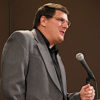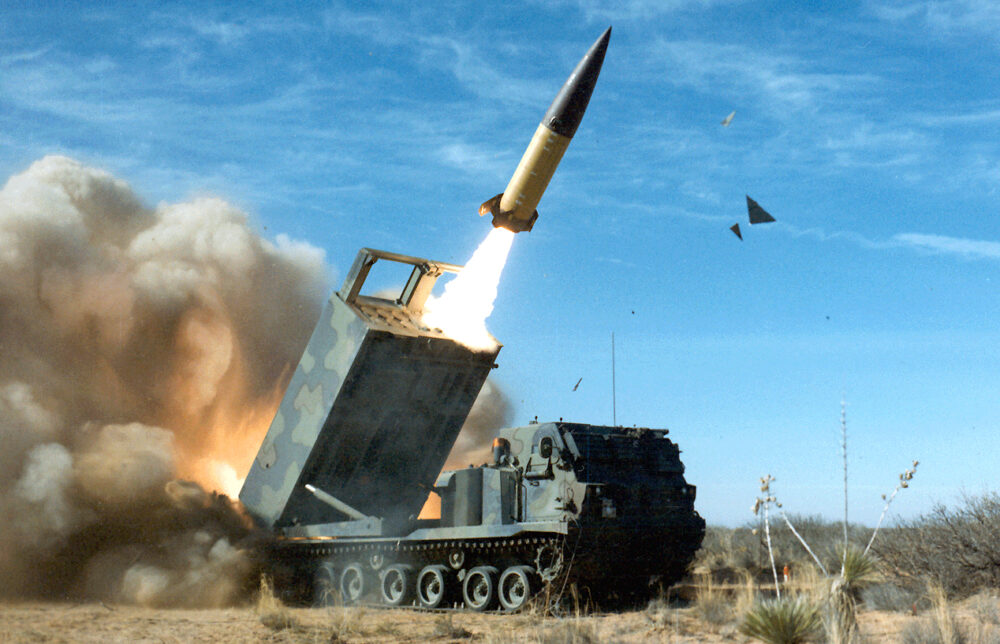SCOTT RITTER: Congress Must Prevent Nuclear War
Today is the gravest danger of nuclear war than at any time in the nuclear era. This is a reality so stark and intimidating that many people feel powerless to do anything about it. But something can be done.

U.S. House of Representatives Building and the east portico of the U.S. Capitol, Washington, D.C. (Ron Cogswell, Flickr, CC BY 2.0)
A Call to Action: Congressional intervention is needed to prevent a nuclear war with Russia.
By Scott Ritter
Special to Consortium News

Congress can be somewhat intimidating to the uninitiated—a literal shining house on a hill, where the empowered elite gather in chambers to debate the finer points of issues that impact our daily lives.
What is sometimes overlooked by the average citizen is that the vehicle of empowerment that allows these anointed lawmakers to take their seats in these chambers is themselves — every two years these representatives of the people must stand muster before their respective constituents and convince enough of them to cast a vote in their favor.
If they win a majority of votes, they can remain in Washington, D.C. If not, they return home unemployed. Because of this electoral reality, the men and women who populate the House of Representatives are very responsive to the will of the people, especially when confronted with numbers they simply cannot ignore.
This phenomenon holds true for Senators, too, although they only must face the crucible of the voter once in six years.
In early 2000, I was invited to speak to an audience of influential citizens of Omaha, Nebraska. It was a very conservative crowd, inclined to take an aggressive stance when it came to Iraq and its president, Saddam Hussein.
Following my introduction, I took to the podium to near silence — the crowd was clearly not inclined to listen to someone articulating an argument in favor of peace and diplomacy. Forty-five minutes later I had the crowd on their feet, cheering.
I had made my case.
In the question-and-answer period, someone asked me if I had spoken with Senator Chuck Hagel. I told them I had tried, but he wouldn’t take my call. I noted that he worked for them, and if perhaps he received a few phone calls from the good citizens of Omaha, Nebraska, he might be inclined to meet me.
I arrived to my home in New York the next day. Almost immediately my phone rang — it was Chuck Hagel. “Scott, I don’t know what the hell you did or said, but my phone has been ringing non-stop all day, and my fax machine has run out of paper printing all the letters people are sending about my need to have a meeting with you. When can you come down to Washington?”
Democracy works when we make it work.
Today Americans from all walks of life are confronted with the real threat of nuclear war — many experts, me included, believe that there is a greater danger today that at any time in the nuclear era for a nuclear war — greater than during the Cuban Missile Crisis.
This is an overwhelming reality, one so stark and intimidating that many people feel powerless to do anything about it.
But there is something that can be done.
Stop the ATACMS
When one breaks down the myriad of factors that contribute to the risk of a nuclear conflict between the U.S. and Russia, one issue emerges as the principle trigger for conflict — the decision by President Joe Biden to authorize Ukraine to fire U.S.-made ATACMS missiles (with assistance of U.S. personnel and satellites) against targets on Russian soil.
This action prompted Russia to escalate by launching an intermediate-range missile in retaliation against a target in Ukraine, and to threaten additional launches against targets located on soil belonging to NATO members, potentially triggering a larger war, one which could easily end up in a nuclear exchange between the U.S. and Russia (an exchange senior officers involved in the planning of nuclear war for the US have said they are prepared to engage in.)
Secretary of Defense Lloyd Austin, back in September of this year, refused to greenlight the use of ATACMS missiles by Ukraine against Russia, noting that the weapons would not turn the tide on the battlefield, but would increase the risk of dangerous escalation.
This was sound thinking.
For some reason, President Biden, in mid-November, thought differently, and gave Ukraine the permission it had been seeking.
And now we find ourselves on the cusp of a nuclear war.
Austin was right — the use of ATACMS against Russian targets does not help Ukraine. It only brings the risk of nuclear escalation.
Below is the draft of a letter that will be sent to members of the House Foreign Affairs Committee asking them to pressure President Biden to reverse his decision regarding ATACMS use by Ukraine.
If we collectively can make the phones of the members of this committee—especially the Chairman and the Ranking Member — ring off the hook, and empty the paper trays of their fax machines, we might be able to get enough signatures on this letter to catch the attention of the President.
Democracy works, if we make it work.
Pick up the phone. Call every name on this list. Fax them. Tell them you don’t want to die in a nuclear war. Demand that they sign this letter. And we might have a chance.
The Letter
We, the undersigned Members of Congress, believe that the recent decision by your administration to authorize the Ukrainian military to use United States-provided Army Tactical Missile System (ATACMS) against targets inside Russian territory as defined by the pre-2014 borders (i.e., territory not inclusive of Crimea, Kherson, Zaporizhia, Donetsk and Lugansk) has put the United States on a trajectory toward nuclear war with Russia.
The Russian government has, on numerous occasions, clearly articulated that this action is tantamount to a state of war existing between the United States and Russia — namely, that the United States, through this action, has become an active participant in the ongoing Russian-Ukrainian conflict. This Russian position remains unchanged despite statements from your administration that the United States does not consider itself a party to the conflict.
Complicating the matter further is the fact that Russia has modified its nuclear doctrine in a way which lowers the threshold for the use of nuclear weapons. According to this new posture, the Russian government would consider a nuclear response to a conventional attack by a non-nuclear power if backed by a nuclear power.
The Kremlin spokesperson, Dmitry Peskov, has stated that the use of U.S.-provided ATACMS missiles by Ukraine against targets inside Russia meets this threshold, and could potentially be a trigger for a nuclear response under the revised doctrine.
The U.S. Intelligence community has reportedly issued an assessment which holds that Russia is unlikely to use nuclear weapons in retaliation for escalatory actions carried out by Ukraine with or without the assistance of the United States and NATO allies.
This assessment is contradicted by the words and actions of the Russian leadership, including Russian President Vladimir Putin. Russia has recently employed an intermediate-range strategic missile, the Oreshnik, armed with a conventional warhead, against a military industrial target in Ukraine in retaliation for the ATACMS attacks. Russia has promised further such attacks against Ukrainian targets and, if the ATACMS attacks continue unabated, NATO targets outside of Ukraine.
Such an action would trigger Article 5 of the NATO Charter, putting Russia in direct conflict with NATO, an action most experts believe would likely end in a nuclear conflict. Russian authorities, including its most recent Ambassador to the United States, has made it clear a nuclear conflict would not be limited to Europe, but also include the territory of the United States.
It is imperative that your administration reverse the decision regarding the use of ATACMS missiles by Ukraine against targets inside the borders of pre-2014 Russia. Such an action would, in and of itself, significantly reduce the risk of nuclear war, and could pave the way for a potential negotiated settlement of the Russian-Ukrainian conflict. If you fail to do so, the risk of a Russian nuclear retaliation against NATO prior to the end of your term in office is very high.
Click on the name of your representative and others below to contact them and send them this letter to sign and send to the White House.
Republican
- 1. Michael T. McCaul, TX Chair
- 10. Andy Barr, KY
- 12. Young Kim, CA
- 22. Cory Mills, FL
- 25. John James, MI
- 26. Keith Self, TX
Democrat
- 5. Ami Bera, CA
- 8. Ted Lieu, CA
- 12. Andy Kim, NJ
- 13. Sara Jacobs, CA
- 16. Greg Stanton, AZ
- 21. Jim Costa, CA
- 22. Jason Crow, CO
- 23. Gabe Amo, RI
- 24. Kweisi Mfume, MD
Scott Ritter is a former U.S. Marine Corps intelligence officer who served in the former Soviet Union implementing arms control treaties, in the Persian Gulf during Operation Desert Storm and in Iraq overseeing the disarmament of WMD. His most recent book is Disarmament in the Time of Perestroika, published by Clarity Press.





Geen opmerkingen:
Een reactie posten